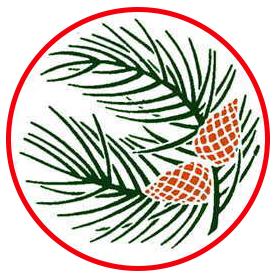Early Years
The Early Year Foundation Stage is the statutory curriculum, which is followed by all Reception classes.
Children joining our school have already learnt a great deal: many have been to one of a range of settings that exist in our community and so the Early Years education we offer our children builds on what they already know and can do. In partnership with parents and carers, we enable the children to begin the process of becoming active learners for life. We believe in fostering strong, positive relationships with each child, nurturing their individual development and guiding them at the beginning of their schooling journey.
The EYFS is based upon four principles:
• A unique child - developing resilient, capable, confident and self-assured individuals. We recognise that every child is a competent learner who can be resilient, capable, confident and self-assured. We recognise that children develop in individual aways and at varying rates. Children’s attitudes and dispositions to learning are influenced by feedback from others; we use praise and encouragement as well as celebration and rewards to encourage and develop a positive attitude to learning.
• Positive relationships - supporting the children in becoming strong and independent. We recognise that children learn to be strong and independent from secure relationships and aim to develop caring, respectful and professional relationships with the children and their families.
• Enabling environments - where opportunities and experiences respond to the individual needs of the child by developing a strong partnership between practitioners, parents/carers and the child. We recognise that the environment plays a key role in supporting and extending the children’s development. Through observations we assess the children’s interests, stages of development and learning needs before planning challenging and achievable activities and experiences to extend their learning.
• Learning and developing - An acknowledgement that children learn in different ways and at different rates. The Early Years Unit is organised to allow children to explore and learn securely and safely. There are areas where the children can be active, be quiet and rest. The unit is set up in learning areas where children are able to find and locate equipment and resources independently.
Curriculum Areas
The curriculum is divided into Prime and Specific areas for learning and development, which are particular important for building a foundation for igniting children’s curiosity and enthusiasm for learning, forming relationships and thriving.
Prime Areas:
• Communication and Language
• Physical Development
• Personal, Social and Emotional Development
Specific Areas:
• Literacy
• Mathematics
• Understanding the World
• Expressive Arts and Design
Through careful observations and assessments, including information provided by parents, children’s development levels are assessed. There is a balance of learning in all areas of our curriculum as children grow in confidence and ability within the three prime areas.
Each area of learning and development is implemented through a mix of adult-led and child-initiated activities. Play and active learning are essential parts children’s development, building their confidence as they learn to explore, to think about problems, and relate to others. Children learn by leading their own learning, and by taking part in active learning which is guided by adults.
We believe pupil’s voice plays a significant role in the design of the curriculum at The Horsell Village School. Learning is based on an overarching theme and activities are planned for from response of the children’s ideas as well as ensuring clear coverage of all areas of our curriculum.
At The Horsell Village School we support children in using the three characteristics of effective teaching and learning. These are:
• Playing and exploring - children investigate and experience things, and ‘have a go’;
• Active learning - children concentrate and keep on trying if they encounter difficulties, and enjoy achievements; and
• Creating and thinking critically - children have and develop their own ideas, make links between ideas, and develop strategies for doing things. (Taken from Development Matters 2020).
